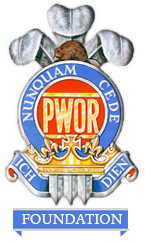Sports Greats
George Richardson
On the outbreak of World War I, George Richardson by then a full lieutenant in the 14th (PWOR), volunteered for service overseas and was assigned to the 2nd Canadian Infantry Battalion. After training at Valcartier, Que., and on Salisbury Plain in England, the battalion landed in France on 11 Feb. 1915 and then entered the trenches around Armentières. Shortly thereafter it advanced to Ypres (Ieper), Belgium, where in April it suffered losses amounting to “virtual annihilation.” Having already experienced the most intense conflict, Richardson, now a captain, led a courageous but ultimately futile attempt to retake Saint-Julien (Sint Juliaan) before emerging as the sole surviving officer of No.2 Company, of which he then assumed command.
On the brightly moonlit night of 8–9 Feb. 1916, having entered a snow-covered no man’s land near Wulvergem to supervise the withdrawal of a dangerously exposed raiding party, Richardson paid the ultimate price for
Awards and
- 1916 – Awarded La Légion d’honneur Croix de Guerre by France
- 1920 – Richardson Stadium at Queen’s named in his
honour .
Scotty Davidson
Allan McLean “Scotty” Davidson (March 6, 1892 – June 16, 1915) was a Canadian ice hockey player and soldier (a member of the PWOR – “C” Company, number 1221, and promoted to the rank of corporal May 18, 1911). He was considered one of the top wingers of the game’s early years. He led his Kingston junior team to two Ontario Hockey Association championships in 1910 and 1911, when he moved to Calgary for the 1911–12 season and led the Calgary Athletics senior team to the Alberta provincial championship. Davidson turned professional with the Toronto Blueshirts in 1912 and was among the ‘s leading scorers the following two seasons. He captained Toronto to the Stanley Cup championship in 1914.
Upon the outbreak of war in 1914, Davidson volunteered with the Canadian Expeditionary Force; he was the first professional hockey player to do so. He was killed in action while fighting in Belgium in June 1915. Hailed as a hero by his peers, Davidson was said to have been killed after refusing to retreat during a battle. He is commemorated on the Canadian National Vimy Memorial. Davidson was posthumously inducted into the hockey Hall of Fame in 1950.
Frank McGee
Frank McGee was born on 4 Nov 1882 in Ottawa, ON, the son of John and Elizabeth. Frank’s father, John, was a clerk of Canada’s Privy Council, his uncle D’Arcy McGee, a Father of Confederation. He was a member of the early Rough Rider’s Football team, an oarsman for the Ottawa fours at the Canadian Henley Regatta on many occasions, and played hockey for Ottawa Silver Seven. He lost an eye on 21 Mar 1900 while playing in an exhibition hockey game in Hawkesbury, ON. The game was to raise money for Canada’s part in the South African War. He played for the Ottawas hockey team in 1903 when they won the Stanley Cup. They were renamed the Ottawa Silver Seven and they again won in 1904 and

